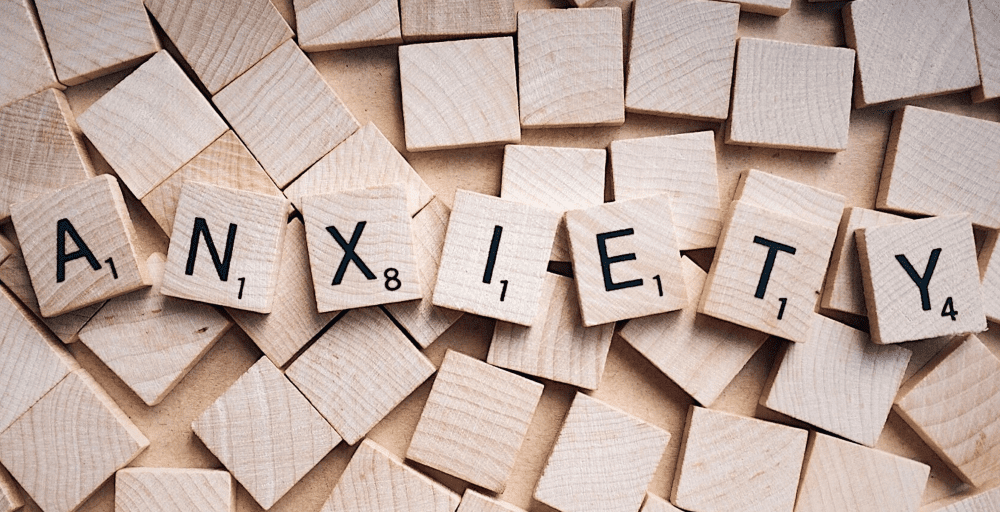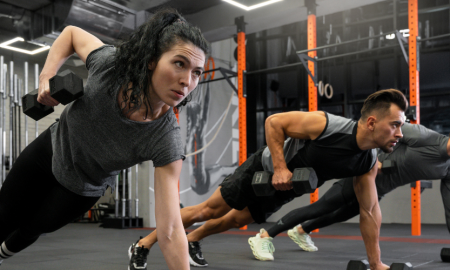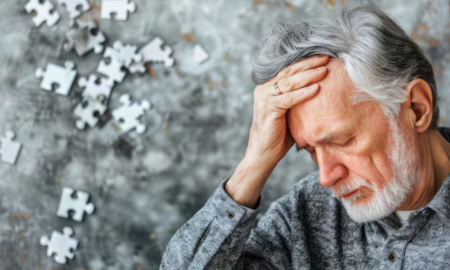
8 Symptoms of Anxiety that Aren’t Just Psychological

 Anxiety is often considered a mental and emotional disorder characterized by an overwhelming fear that can often be debilitating. That’s a pretty accurate description of anxiety, however, its symptoms aren’t just psychological, some are physical too.
Anxiety is often considered a mental and emotional disorder characterized by an overwhelming fear that can often be debilitating. That’s a pretty accurate description of anxiety, however, its symptoms aren’t just psychological, some are physical too.
Experiencing anxiety is similar to being on a rollercoaster where fears and emotions come in waves, and they’re often so overwhelming that they give you a nauseous feeling in the pit of your stomach. But unlike rollercoasters, experiencing anxiety is hardly ever fun. Experiencing anxiety is similar to being on a rollercoaster where fears and emotions come in waves.
As soon as you become anxious about something, your body’s fight-or-flight response kicks in and your brain goes into panic mode as if trying to scream, ‘DANGER!’ But it isn’t just your nervous system that is affected by the release of stress hormones.
Anxiety has an effect on every single part of your body, and there are some physical symptoms that can indicate if you’re experiencing it. Here are some of the physical symptoms of anxiety to watch out for.
A Racing Heart
One of the biggest signs of anxiety is a sudden increase in your heart rate. According to the National Institute of Mental Health, your heart rate is controlled by your body’s sympathetic nervous system which is why you experience a quicker heartbeat once you encounter something stressful and your adrenaline glands start producing excess adrenaline and cortisol.
Shortness of Breath
 Stress can also control your blood circulation. So when you experience a rush of adrenaline and cortisol, your body responds by circulating oxygen more quickly. To keep up with the increased flow, you may need to breathe in more air to provide more oxygen during blood circulation. In some cases, anxiety can lead to hyperventilation which only enhances other symptoms of anxiety, leading to a full-blown panic attack.
Stress can also control your blood circulation. So when you experience a rush of adrenaline and cortisol, your body responds by circulating oxygen more quickly. To keep up with the increased flow, you may need to breathe in more air to provide more oxygen during blood circulation. In some cases, anxiety can lead to hyperventilation which only enhances other symptoms of anxiety, leading to a full-blown panic attack.
Constant Exhaustion
People who experience frequent bouts of anxiety report constant fatigue and exhaustion that discourages them from being physically active.
The reason behind this symptom is two-fold. Anxiety causes a dramatic increase in your body’s adrenalin levels which increases alertness in the short-run but quickly leads to exhaustion once the feeling wears off. There could also be another reason behind this: people with anxiety get poor-quality sleep which leads to a decrease in alertness and energy during the day.
Restlessness During the Night
It’s not easy to fall asleep when you’re constantly experiencing an unexplained fear and confusion that keeps your mind alert even when your body is exhausted.
People with anxiety have difficulty falling asleep, and even when they do, they tend to wake up often during the night and experiencing restlessness that can lead to exhaustion in the morning.
Aching Muscles
Stress can cause your muscles to tense up as they involuntarily prepare themselves for a fight-or-flight response. If you experience constant anxiety, it can lead to muscle aches. Most anxiety sufferers experience pain in their necks, shoulders, or backs. People with anxiety report several digestive symptoms like constipation, stomach ache, nausea, and diarrhea.
Digestion Problems
 Experiencing frequent stress and anxiety is bound to take a toll on your GI system. People with anxiety report several digestive symptoms like constipation, stomach ache, nausea, and diarrhea. Most doctors cite our gut-brain axis as the cause behind the symptoms.
Experiencing frequent stress and anxiety is bound to take a toll on your GI system. People with anxiety report several digestive symptoms like constipation, stomach ache, nausea, and diarrhea. Most doctors cite our gut-brain axis as the cause behind the symptoms.
Your brain is connected to the digestive system through an enteric nervous system which is why stress-induced hormones can directly impact your gut and even your immune system.
Sweaty Palms
Cold sweat is an inevitable aspect of anxiety. Most people experience chills when they get anxious but sweat profusely simultaneously. According to NIMH, sweating is a common side effect of anxiety caused by a sudden activation of sweat glands by the sympathetic nervous system.
Shaking and Trembling
One of the common by-products of anxiety is trembling, which often kicks in when your body starts producing stress-induced hormones excessively. Anxiety sufferers are constantly on guard and get startled easily.
More in Body
-
`
Are Mono Diets Worth It – or Just a Dangerous Trend?
As summer brings on the pressure to slim down fast, the internet lights up with diet trends promising instant results. One...
August 3, 2025 -
`
Why Motivation Is Essential for Sustainable Fitness Success
Motivation isn’t something that shows up when it’s convenient—it’s something that needs to be built, shaped, and sustained. Many people struggling...
July 27, 2025 -
`
The Mystery of Human Body Parts That Science Still Can’t Solve
The human body is a patchwork of evolutionary choices, quirks, and mysteries. From skeletal structure to the tiniest gland, everything tells...
July 18, 2025 -
`
Why a Mediterranean Diet and Exercise Slow Bone Loss in Seniors
Bone health isn’t just a concern for the elderly—it’s something that starts to matter the moment the body begins to lose...
July 12, 2025 -
`
Want Better Memory? This Diet Could Help Keep Your Brain Sharp
Losing focus, memory lapses, or slower thinking—these aren’t just normal parts of aging. While cognitive changes do happen over time, lifestyle...
July 5, 2025 -
`
The Truth About Health Tracking Apps and Their Impact on Wellness
Scroll through social media or browse the App Store, and you’ll likely spot dozens of health tracking apps. They promise everything—from...
June 29, 2025 -
`
New Study Reveals Alzheimer’s Affects the Entire Body
Most people associate Alzheimer’s with memory loss and cognitive decline, assuming its impact stays confined to the brain. But new findings...
June 21, 2025 -
`
The One Simple Habit Mark Cuban Credits for His Success
Success doesn’t come from shortcuts or luck—it’s built on habits that stand the test of time. Mark Cuban, the outspoken billionaire,...
June 14, 2025 -
`
Thinking of a Detox Diet? Read This Before You Start
Detox diets continue to be one of the most talked-about trends in the wellness space. Whether it’s juice cleanses, tea plans,...
June 8, 2025









You must be logged in to post a comment Login